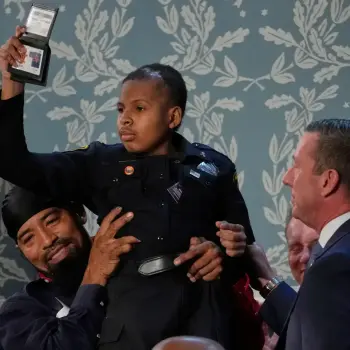Christians believe in the resurrection. Though the idea of a literal resurrection is less and less common, even among Christians, many of us continue to believe in it. Understood literally or otherwise, we might suppose that the idea of resurrection attenuates the feeling of loss when a loved one dies. If so, then it also might seem that mourning is selfish or at least self-directed, sadness at our personal loss more than at the other person's death, a death that our belief in resurrection implies is only temporary.
John Wesley is right that "profuse sorrowing for the dead" is unprofitable and even sinful ("On Mourning the Dead," Sermons on Several Occasions). Yet even Father Abraham mourned: "And Sarah died in Kirjath-arba . . . and Abraham came to mourn for Sarah, and to weep for her" (Gen. 23:2). Latter-day (Mormon) scripture commands us: "live together in love, insomuch that thou shalt weep for the loss of them that die" (D&C 42:45), and it tells us that we must "mourn with those that mourn" (Mosiah 18:9). Paul tells us that we should "weep with them that weep" (Rom. 12:15). There is no suggestion in these scriptures that belief in the resurrection ought to prevent us from genuine mourning.
A good Christian can mourn. According to the New Testament as well as other Latter-day Saint scripture, a good Christian ought to mourn. Sometimes we mourn those whom we know and love, as when a child or spouse dies. Sometimes we mourn those we don't know at all, as when we hear of victims of war, terror, or natural disaster. This weekend many of us will mourn thousands whom we never met, victims on September 11, 2001.
Mourning is important, whether it is for persons we have lost, things we have lost, or pleasant and beneficial ways of living that have been destroyed. Mourning is what we ought to do in response to those losses. And though there will necessarily be a sense of personal loss in any mourning, mourning for persons (or things) also ought to be mourning for the person lost and not just for our loss.
In "Mourning and Melancholia," Sigmund Freud uses the phrase "the work of mourning" to talk about how we respond to loss. The 20th-century French philosopher, Jacques Derrida, later picks up the term for his own related purposes. But as interesting as the works of those two thinkers are, I'm interested here in a simpler question: what do we do when we mourn someone, and what does Christianity have to say about mourning? In short, "What is the work of Christian mourning?" That question should occupy us as we recall our personal and national losses in 9/11 and its ongoing aftermath.
We might define mourning as "recognizing the loss of another, and suffering in response to that loss." When we mourn, we recognize that the person we value has disappeared. We need not know that person. We need only value her. But usually the depth of our mourning will be proportional to how well we knew the person now gone. (In fact, if it is not, then something has gone wrong. Disproportionate mourning, "profuse" to use Wesley's term—or the absence of mourning when it would be appropriate—is a sign of a mental or social problem.)
When we understand that in mourning we recognize loss, not only our loss but also that of the person lost, we understand as well that mourning necessarily involves suffering, being affected, often painfully. As mortals, we find ourselves stretched between birth and death, affected by those around us, affected by the absence of those formerly among us.
Were the death of another whom I value not to cause me to suffer, not to affect me, then I would reject her humanity as well as my own. The work of mourning is to respond appropriately to the loss of another person. And it is genuinely work. It takes time to complete.
The paradox is that I cannot respond to another's death appropriately, and eventually appropriate in some way the loss that mourning recognizes, without exaggerating the presence of that loss in my psyche. We must pay special attention to what we have lost if we are to deal with that loss.
My friend dies. Prior to his death, we met for lunch often or did things together. We corresponded occasionally. We went out to dinner with our wives and gossiped harmlessly about the university or our congregations over good food. But much of my day and week went by without any thought of him. With his death, however, his absence takes on a new significance. I am aware of that absence more than I was aware of his presence. I mourn him more often and more intensely than I ever celebrated his friendship when he was alive. And that is neither unusual nor inappropriate. I could not mourn him otherwise.





